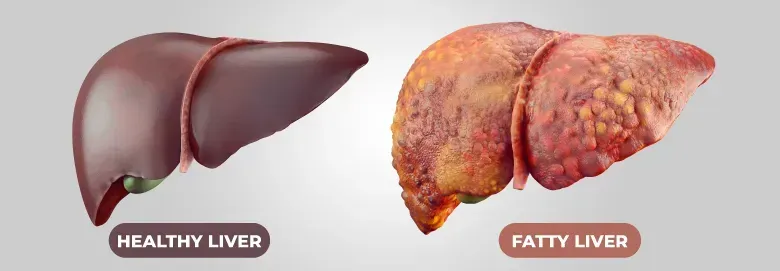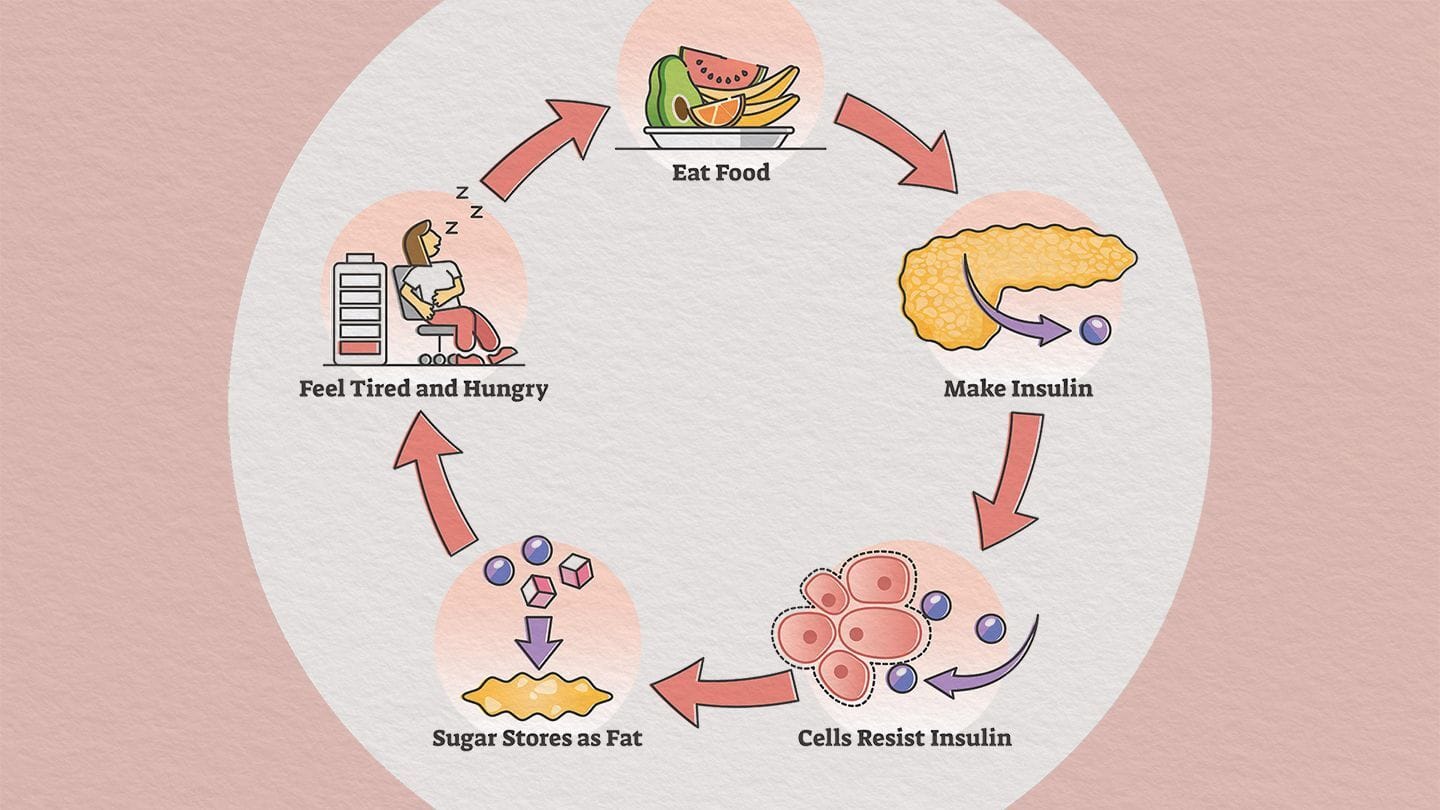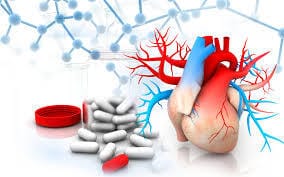Beyond Gout: How Uric Acid Affects Your Entire Body
Uric acid is not just a byproduct of metabolism, it is a key player in some of our most pressing health challenges. Recent studies are connecting elevated uric acid levels to an alarming array of chronic diseases - obesity, diabetes, heart disease, and cognitive decline.

For decades, uric acid has been dismissed as nothing more than a troublemaker behind painful gout attacks and kidney stones. But groundbreaking research has revealed a hard truth: this seemingly simple waste product might be one of the most important health markers you've never heard of.
Recent studies are connecting elevated uric acid levels to an alarming array of chronic diseases—obesity, diabetes, heart disease, and even cognitive decline.
What's emerging is a picture of uric acid not just as a byproduct of metabolism, but as a key player in some of our most pressing health challenges. Dr. David Perlmutter's pioneering research is helping us understand why this ancient survival mechanism has become a modern health crisis, and more importantly, what we can do about it.
What Exactly Is Uric Acid?
Think of uric acid as your body's recycling byproduct. When you consume foods high in fructose (like sugary drinks and processed foods) or purines (found in certain meats and seafood), your body breaks them down and produces uric acid as waste. Under normal circumstances, most of this waste gets filtered out by your kidneys and expelled in your urine.
For years, doctors only worried about uric acid when it crystallised in joints, causing the excruciating pain of gout, or when it formed kidney stones. But this narrow focus meant we were missing the bigger picture. Scientists are now discovering that even moderately elevated uric acid levels, well below what causes gout, can signal and contribute to widespread health problems throughout your body.
The Shocking Connection to Chronic Disease
The list of conditions linked to high uric acid reads like a who's who of modern health epidemics: obesity, insulin resistance, type 2 diabetes, fatty liver disease, high blood pressure, cardiovascular disease, stroke, neurological disorders, and even premature death. This isn't a coincidence—it's cause and effect.

Elevated uric acid isn't just showing up alongside these diseases; it's actively contributing to their development. Your uric acid level isn't merely a warning sign—it's a key player in the disease process, making it both a predictor and a contributor to poor health outcomes.
How Uric Acid Sabotages Your Metabolism
To understand uric acid's impact, meet AMPK—an enzyme scientists call "metabolism's guardian." AMPK acts like your body's energy accountant, deciding whether to burn fat for fuel or store it. When AMPK is active, your metabolism hums along efficiently, burning fat and stabilising blood sugar.
Here's where uric acid becomes the villain: it directly suppresses AMPK activity. When uric acid levels rise, AMPK shuts down, triggering a cascade of metabolic problems. Your body starts storing fat instead of burning it, blood sugar levels climb, and insulin resistance develops. What was once an evolutionary advantage—helping our ancestors survive food shortages—has become a metabolic disaster in our world of constant food availability.

Your Brain on High Uric Acid
Perhaps most alarming is the emerging research connecting uric acid to cognitive decline and dementia. A landmark Johns Hopkins study followed older adults and found a strong correlation between high uric acid levels and poor cognitive performance. The higher the uric acid, the worse the brain function.
The mechanisms behind this brain-body connection are becoming clearer. High uric acid promotes chronic inflammation throughout the body, including the brain. It contributes to insulin resistance, which impairs the brain's ability to use glucose for fuel. It also affects blood flow, reducing the oxygen and nutrients reaching brain cells. These pathways create the perfect storm for cognitive decline and may explain why conditions like Alzheimer's disease often occur alongside metabolic disorders.
The Evolutionary Plot Twist
Why do humans have this uric acid problem in the first place?

This wasn't an evolutionary mistake—it was a survival advantage. Higher uric acid levels helped our ancestors survive starvation by promoting fat storage and creating insulin resistance, allowing them to maximise energy storage from limited food sources. But what helped our ancestors survive feast-or-famine cycles now contributes to chronic disease in our age of abundance.
The Heart of the Matter
The cardiovascular implications of high uric acid are particularly concerning. Research consistently shows that elevated uric acid levels correlate with increased risk of hypertension, heart disease, and stroke. This isn't entirely new—as far back as the early 1900s, physician Dr. Alexander Haig was documenting connections between uric acid and heart problems.

What's new is our understanding of the mechanisms.
Why Our Uric Acid Levels Are Skyrocketing
If uric acid has been in humans for millions of years, why is it causing problems now?
Taking Control: How to Check and Manage Your Uric Acid
The first step is knowing your number. Ask your healthcare provider to test your uric acid level, or consider an at-home test kit. The target you're aiming for is below 5.5 mg/dL—well below the levels that cause gout but optimal for overall health.
If your levels are elevated, don't panic. Uric acid is highly responsive to lifestyle changes:
Dietary Changes: Dramatically reduce your fructose intake, especially from sugary drinks, processed foods, and high-fructose corn syrup. Limit alcohol consumption, particularly beer, which is especially high in purines. Reduce portions of purine-rich foods like organ meats, certain seafood, and some legumes.

Exercise Regularly: Physical activity naturally activates AMPK, counteracting uric acid's metabolic suppression. Even moderate exercise can help control blood sugar, promote fat burning, and improve overall metabolic health.
Consider Targeted Supplements: Research suggests that quercetin, a natural flavonoid in onions and apples, may help normalise uric acid levels. Vitamin C has also shown promise in reducing uric acid and may offer additional protective benefits.

Your Action Plan for Better Health
Don't wait for symptoms to appear. Even if you've never had gout or kidney stones, discuss uric acid testing with your healthcare provider. Many people with elevated levels have no obvious symptoms until serious health problems develop.
The beauty of focusing on uric acid is that the interventions are largely within your control. Unlike genetics or age, uric acid responds dramatically to lifestyle changes. Reducing sugar intake, increasing physical activity, and making smart dietary choices can significantly lower your levels and reduce your risk of chronic disease.
The Bottom Line
Uric acid represents a fundamental shift in chronic disease prevention. Rather than waiting for individual diseases to develop and treating them separately, understanding uric acid gives us a window into the interconnected nature of metabolic health.
This isn't about perfection—it's about awareness and improvement. Small changes in your daily habits can lead to significant improvements in your uric acid levels and overall health.
By controlling this one key marker, you're not just preventing gout; you're potentially protecting yourself against some of the most serious health challenges. The science is clear, the tools are available, and the power to change is in your hands.






